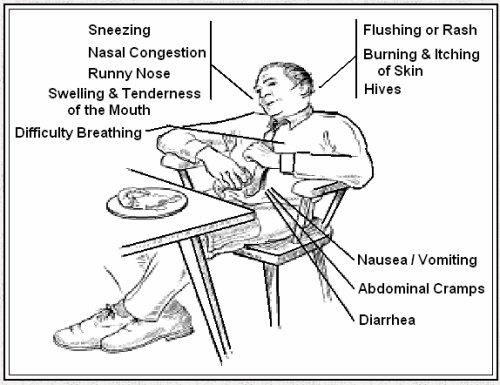
New food allergy guidelines, funded by the National Institute of Allergy and Infectious Diseases, were released today. The new guidelines for medical professionals were developed over the last two years with input from more than 30 professional organizations, federal agencies and patient advocacy groups.
Here is an overview about the guidelines:
Food allergy is an important public health problem that affects adults and children and may be increasing in prevalence.
Despite the risk of severe allergic reactions and even death, there is no current treatment for FA: the disease can only be managed by allergen avoidance or treatment of symptoms. Moreover, the diagnosis of FA may be problematic, given that nonallergic food reactions, such as food intolerance, are frequently confused with FAs.
Additional concerns relate to the differences in the diagnosis and management of FA in different clinical practice settings.
Due to these concerns, the National Institute of Allergy and Infectious Diseases (NIAID), part of the National Institutes of Health, working with more than 30 professional organizations, federal agencies, and patient advocacy groups, led the development of ‘‘best practice’’ clinical guidelines for the diagnosis and management of FA (henceforth referred to as the Guidelines).
Based on a comprehensive review and objective evaluation of the recent scientific and clinical literature on FA, the guidelines were developed by and designed for allergists/immunologists, clinical researchers, and practitioners in the areas of pediatrics, family medicine, internal medicine, dermatology, gastroenterology, emergency medicine, pulmonary and critical care medicine, and others.
Find the full report here.